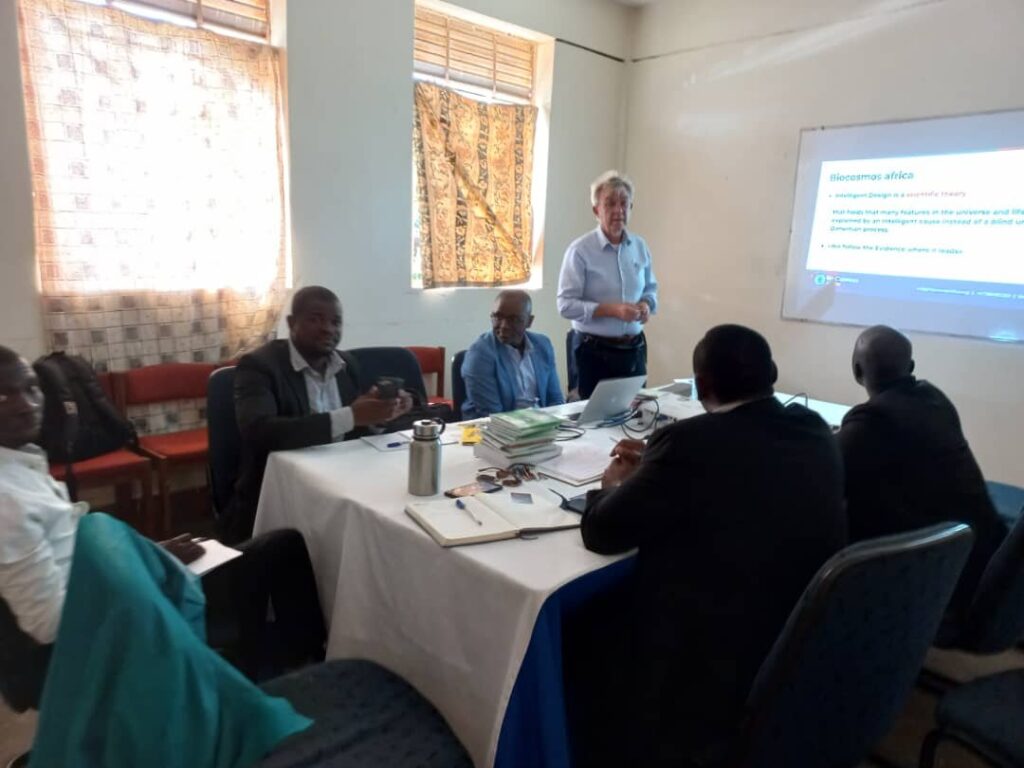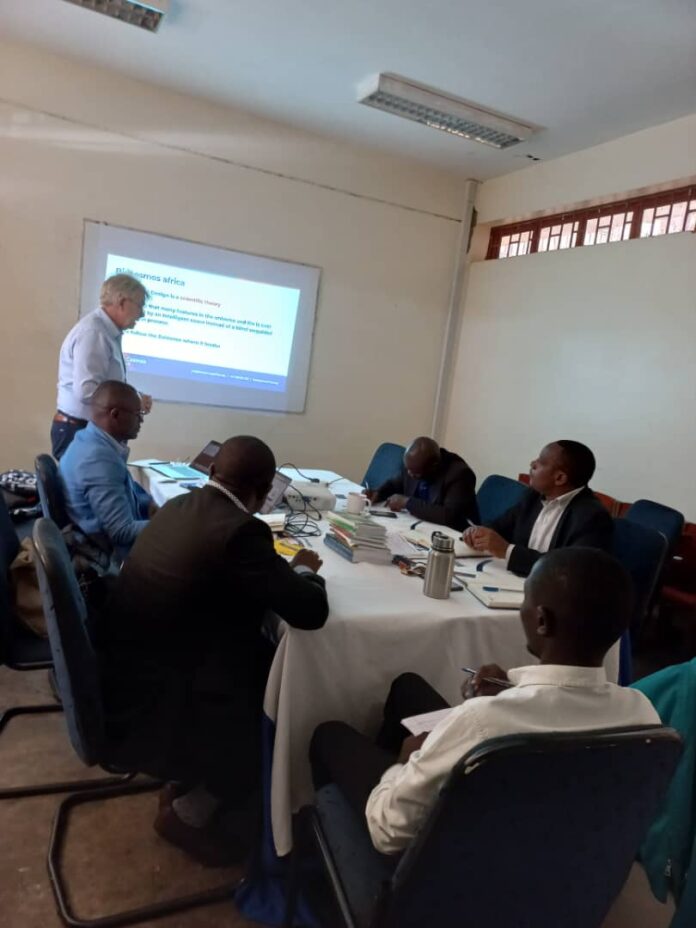Dean, School of Sciences, Dr. Alex Barakagira yesterday hosted a team from Bio Cosmos Africa to discuss possible partnership.
The team comprised of the CEO Bio Cosmos Africa, Dag Kr. Norli, Chair-Bio Cosmos Kenya, Richard Ochieng and Ssempala Sabastian from the Ministry of Education-Uganda.
Norli said, “Bio Cosmos Africa is an association that focuses on presenting the view of Intelligent Design as a relatively new branch of science.”

The association is seeking collaboration with Nkumba University to introduce students based groups with the aim of promoting and conveying knowledge about scientific research and theories related to the origin of the universe, life and human species, by emphasizing the alternative Theory of Intelligent Design.
Intelligent Design (ID) is a scientific theory that holds that many features in the universe and life are best explained by an intelligent cause.
The argument demonstrates that living organisms were created in more or less their present forms by an “intelligent designer.”

Bio Cosmos Africa provides student from partner institutions with an opportunity to participate in relevant academic conferences or foras related to the origin of the Universe, as well as the origin of life and contribute Intelligent Design articles to be published on the BioCosmos websites, magazines and books.
The association also organizes debates for students to discuss Intelligent Design within the Institutions and beyond.
In our extensive research on Intelligent Design(ID), we found out that ID was formulated in the 1990s, primarily in the United States, as an explicit refutation of the theory of biological evolution advanced by Charles Darwin (1809–82).
Building on a version of the argument from design for the existence of God advanced by the Anglican clergyman William Paley (1743–1805), supporters of intelligent design observed that the functional parts and systems of living organisms are “irreducibly complex,” in the sense that none of their component parts can be removed without causing the whole system to cease functioning.
From this premise, they inferred that no such system could have come about through the gradual alteration of functioning precursor systems by means of random mutation and natural selection, as the standard evolutionary account maintains; instead, living organisms must have been created all at once by an intelligent designer.
An American Biochemist and molecular biologist- Michael Behe, offered three major examples of irreducibly complex systems that allegedly cannot be explained by natural means: (1) the bacterial flagellum, used for locomotion, (2) the cascade of molecular reactions that occur in blood clotting, or coagulation, and (3) the immune system.







